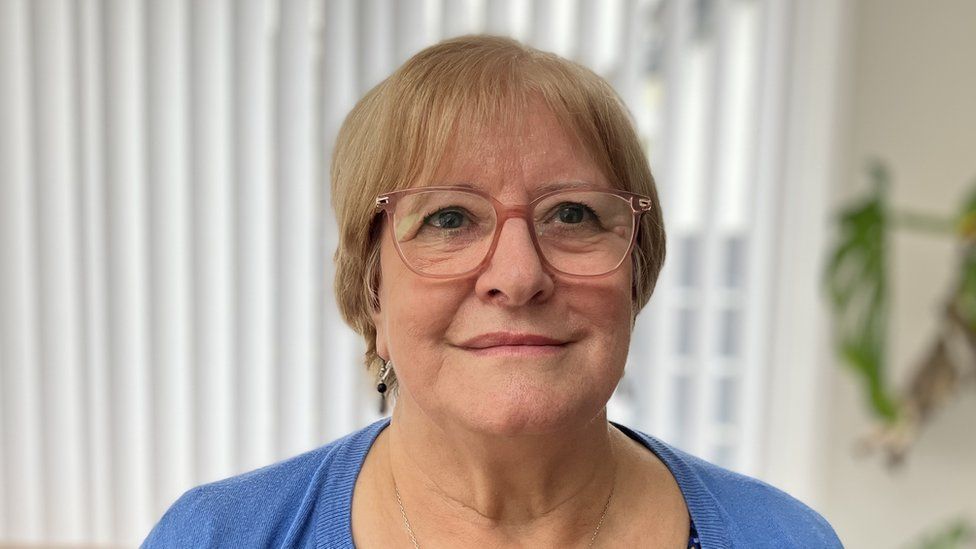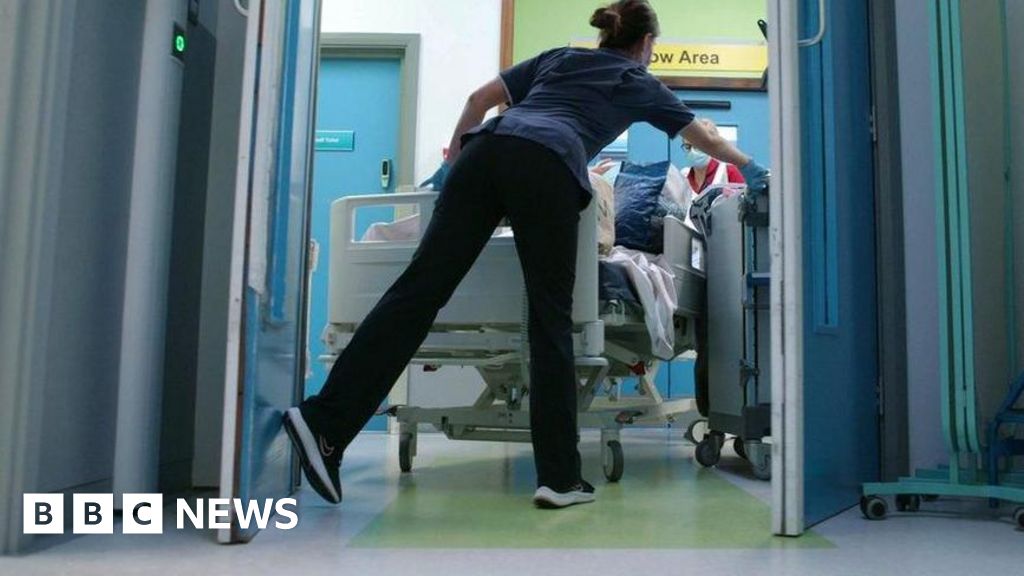ARTICLE AD BOX

Marion Ritchie's husband was diagnosed with dementia at the age of 65
By Georgina Hayes & Lisa Summers
BBC Scotland news
When Marion Ritchie's husband was diagnosed with dementia at the age of 65, she did not realise how quickly his entire personality would deteriorate before her eyes.
Dave, who was a pilot in the Navy in his younger years and had two daughters with Marion, was "devastated" when he received the news but they tried to carry on as normal for as long as possible.
He survived for nine years after his diagnosis before passing away in 2019 but Marion says their lives became a "nightmare" as the disease progressed.
She says she and her daughters received little formal support to cope with the emotional toll of watching someone they loved change beyond recognition.
"We were grieving all of the things that were not now going to happen," she told BBC Scotland News.
"My daughters, who were in their twenties at the time, were probably grieving for not having their dad at graduations, at weddings, or to see his grandchildren.
"I was just grieving for the future that was gone. We were married within a year of meeting, and I thought we were going to be there until the end."
Marion and Dave were married for more than 40 years and had two daughters
About 90,000 people in Scotland are living with dementia at any one time.
Among Dave's symptoms as his condition progressed was delirium, which meant he eventually forgot who his family were.
"He would wake in the night and ask me why I was there, how I got in his house," Marion said.
Dave was later admitted to hospital, which left Marion struggling to cope with guilt.
"You don't know who to ask for help," the 69-year-old said.
Image source, Marion Ritchie
Image caption,Marion and Dave on their wedding day
Despite this profound ongoing trauma, Marion says that social work and the health service did not offer her any emotional support.
"Any support we did get we were seeking out, rather than being offered," she said.
"He was the patient, hospitals don't tend to think of the family and what's happening around them and look at the emotional distress you're in."
It is for people like Marion and Dave that Health Improvement Scotland (HIS) has now released guidelines calling for health and care professionals to be better aware of dementia patients and their loved ones experiencing "pre-death grief".
It is the first new guideline relating to dementia for healthcare professionals in nearly 20 years and urges more linked-up working between different services and better signposting to resources to ensure that the quality of support across Scotland is to a higher standard.
There is also a guideline for patients and their loved ones.
"Pre-death grief is really about the loss of the person before their actual death," said Dr Adam Daly, chair of HIS' guideline development group and a consultant in old age psychiatry.
"Dementia is a condition which is progressive unfortunately, and people will see their relative fading away over the course of months or years," he told BBC Scotland News.
These guidelines aim to improve awareness of that, and try to make sure that patients and their loved ones receive better support.
Image source, Willy Gilder
Image caption,Willy Gilder was diagnosed with dementia in 2021
Like Marion, Willy Gilder has so far had to seek out emotional support himself from charities and online activities.
Diagnosed with dementia in 2021, 70-year-old Willy, who lives in Leith, believes the system is "a bit guilty of diagnosing people and forgetting them".
"I am at a stage before I pass away, I just don't know how long that stage is," he said.
Although Willy tries to stay positive and active, the anticipatory grief of potentially losing his faculties or personality is "terrifying" to him.
A former radio journalist who made a living by talking, he dreads losing the power of speech "more than anything".
"I've met somebody who within a year went from being lively and vivacious and active, to dying," he said.
"That is terrifying. My great fear is I'll lose my independence and my faculties.
"Nobody has ever talked to me about the fact this is a terminal illness, or gone into depth with me about the emotional impact of what this might mean."
Dave Ritchie was a pilot in the Navy in his younger years
It is hoped that the new recommendations will change this for Willy and dementia patients across Scotland.
"It will mean that they can expect a more uniform high standard of care across Scotland, regardless of where they live or who is seeing them at that time," Dr Daly said.
"By making sure those standards are predictably high, we can better measure what we do and make sure we continually improve what we deliver to people, and make sure people are aware of and expecting a high level of care across Scotland."
This will include more training and education for healthcare professionals on pre-death grief to improve communication skills and planning, better awareness of pre-death grief at significant "trigger" events - such as the person with dementia being moved into care - and training for staff in care homes to support patients with understanding the distress caused by pre-death grief.
Marion, from Bearsden in East Dunbartonshire, didn't have the support to recognise herself as experiencing pre-death grief at the time.
She welcomes the new guidelines and hopes to see them available "anywhere that a carer has to sit for hours looking at bare walls".
"Having something you can pick up or look at online to get that information instead of searching through endless websites is amazing," she said.

 1 year ago
33
1 year ago
33








 English (US) ·
English (US) ·